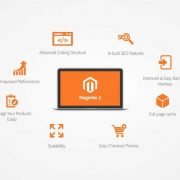The advancements in computer technology in recent years have brought several significant changes. Users want to see a reduction of size in almost all technical gadgets to save space while utilizing all the space they can. This explains the entry and popularity of shoebox-sized PCs or mini PCs.
However, many are still skeptical and question how mini PCs hold up against computers or laptops. The truth is that these gadgets can do something similar to their larger counterparts. In fact, some mini PCs are more powerful than typical desktop computers. Here’s a look at what they are, and the benefits of a mini PC.
What is a Mini Computer?
Just as its name suggests, a mini computer is a variant of an ordinary computer. While it possesses most of the capabilities and specs of a large computer, it is physically smaller. Its name is because of the usefulness it provides in its limited size. Tablets and smartphones are good examples of mini computers.
Given the small size, mini PCs are portable and save a lot of space. Unfortunately, you may have to compromise on some expansions and upgrades. They may not allow you to upgrade anything other than the RAM.
Mini PCs come with a central processing unit and memory, hence work in the same way as a computer. To illustrate, the CPU executes commands by fetching them from memory. Using the arithmetic logic unit (ALU), the CPU completes operations and stores the result in the memory unit.
Parts of a Mini PC
A mini PC has almost similar hardware and software parts with a computer, but with a few differences:
- Processor: Mini PCs have Advanced RISC Machine (ARM)-based processors responsible for data operations
- Computer ports: These include HDMI, RCA-video, or USB ports to allow you to connect to other devices like keyboards or monitors
- Memory: They come with a data storage unit
- Operating system: The platform that runs other programs
- Storage: Mini PCs use Flash memory to hold information.
Unfortunately, mini computers lack a cooling system, a physical interface (keyboards, mouse, and display), and a real-time clock. All the same, they stand to offer a myriad of benefits.
Benefits of a Mini PC
There are various reasons you’d want to buy a mini computer instead of a PC or laptop:
Size
Mini computers are small and compact. As such, you don’t need to sit for prolonged periods when working. They allow you to do a ton of work while standing or walking about. Furthermore, you don’t need to have a computer desk since they only require a small amount of space.
In the same way, mini PCs are ideal for use in small areas like reception desks where there’s limited space. The small size makes mini computers portable and easy to tuck away.
Another critical point is that their storage is easy. Mini computers are readily available with a VESA mount, allowing you to hang them on a wall or behind a monitor. This keeps them out of sight and gives your desk a cleaner look.
Almost No Need for Maintenance
With mini PCs, you don’t need to worry about large-scale maintenance. The chassis design is such that it doesn’t allow dust, air particles, or soot to enter and damage the interior parts. Additionally, the case has fewer openings, hence providing no room for insects or other intruders.
Versatility
Mini computers come with most of the features of full-tower desktop PCs. Hence, you can use them for multiple computing jobs. Besides, they have all the necessary ports and inbuilt components like Bluetooth and Wi-Fi.
Some have extra ports to support multiple monitors, too. Concerning port usage, mini PCs give you the freedom to choose the monitor to use, including your computer, TV monitor, or a digital signage player.
Additionally, mini computers are flexible in many options. You can instantly check email, documents, surf social media, browse the internet, or play games as you perform other tasks.
Pocket-Friendly
Due to their small size, mini computers are less expensive than their computer desktop counterparts. Since they’re just a smaller version of computers as you know them, they come in handy when you’re on a tight budget.
At the same time, mini computers save you money on electricity bills. The reason is that they have low-power consumption, with their average consumption being multiple times lower than traditional laptops or tower-sized machines. For example, a desktop needs more than 100 watts of power, while some mini computers consume no more than 8 watts of power.
Varied OS Support
It’s easy to get a mini PC with your preferred operating system. For example, some have “Chrome boxes” while others have Windows OS. You can also get one with Mac, but it’ll be costlier, though equally useful.
Battery Life
When you compare a mini computer to a regular laptop, you’ll realize it has better and longer battery life. Therefore, it can withstand long periods without the need to recharge. This is yet another reason that supports portability.
Noise Emission
Mini computers operate more quietly because they lack heat dissipation through the use of a fan. Their quiet operation enhances your experience, whether you use these mini machines in the office or home environment.
Overall, mini computers are durable and will go for a long time without repair. However, ensure you choose from a trusted and reputable brand.
Final Thoughts
With the need for computers growing in the home and office environment, users can benefit from mini PCs. All the same, consider your needs and the minimum requirements for your PC before you purchase one.
Fortunately, most of the mini computer models on the market come with features to allow maximum use. Whether it’s for home use, gaming, programming, digital signage at the workplace, or IoT development, you’ll enjoy the many benefits of a mini PC.












